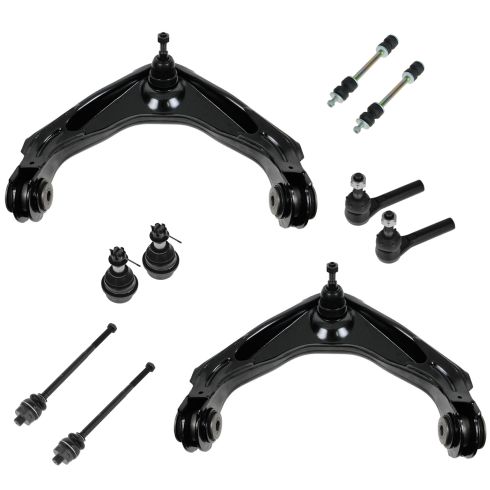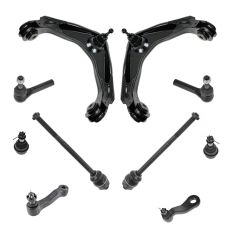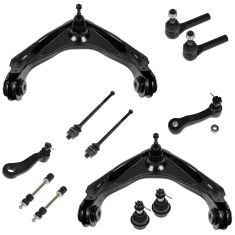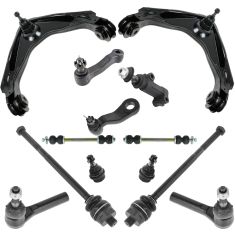1ASFK02496-Chevrolet GMC Hummer Front 10 Piece Steering & Suspension Kit TRQ PSA58917

Replaces
2003 GMC Yukon XL 2500 Front 10 Piece Steering & Suspension Kit TRQ PSA58917

Product Reviews
Loading reviews
4.20/ 5.0
5
5 reviews
Poor parts
October 27, 2017
Most of the parts are not greasable and have very little grease pre installed. I know this because the boot on both lower ball joints ripped before I ever got them on the truck. Very, very thin rubber with cheap clamps. parts made in China! Spend a little more and buy from your local parts store, examine the parts first.
Suspension Kit
September 19, 2019
The kit was exactly what was required/needed before the alignment on my 4x4 could even be considered.. now the truck runs like new; no front end rattling on rough roads and going to the left on its own on the highway. Thanks 1AAuto
I'm a happy camper :)
Front end rebuild
August 24, 2020
2007 Chevy Silverado 2500hd front end rebuild. Parts worked awesome everything went in and fit perfect total front end rebuild. Will be back to buy more parts thanks 1a auto
Front suspension kit
September 8, 2020
All parts fit well. Good experience first time doing the work.
parts
November 2, 2021
so far so good.
Customer Q&A
Are these greasable?
April 11, 2017
10
Some of our vendors supply zerk fittings to allow grease, but others seal them from the factory. To be on the safe side, we would say they are going to be sealed assemblies.
April 11, 2017
Alex P
What brand(s) are in this kit?
May 1, 2017
10
We have a few different aftermarket companies build these parts specifically for us, as our 1A Auto house brand. They are manufactured to the same OEM specifications as the original part that came with your vehicle. If you have any further questions, please don't hesitate to ask.
May 1, 2017
Tim K
GMC is a registered trademark of General Motors Company. 1A Auto is not affiliated with or sponsored by GMC or General Motors Company.
See all trademarks.



















